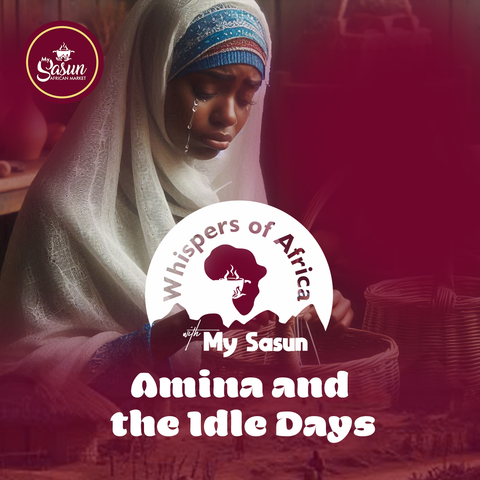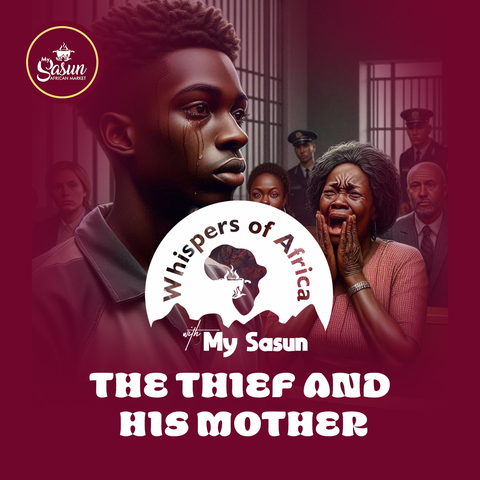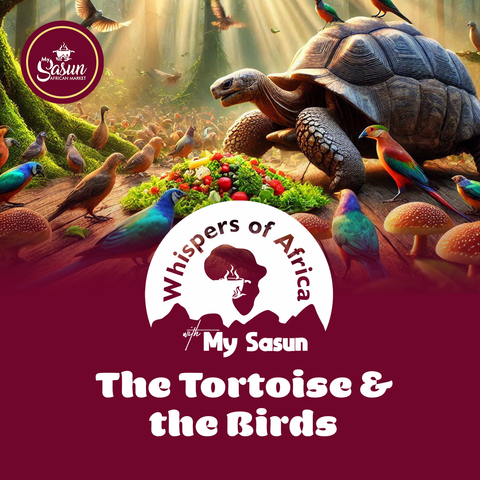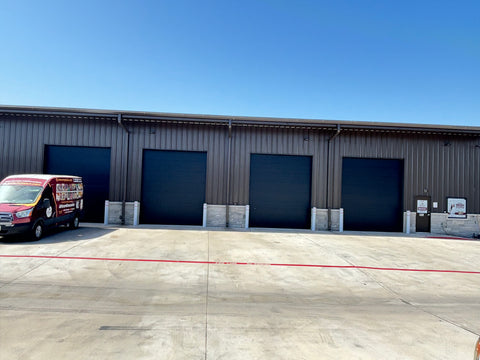In a lively village called Ketura, a village surrounded by golden fields of millet, there lived a young woman named Amina. She was known for her beauty and clever mind, but Amina had one flaw—she loved leisure too much.
While the other villagers woke early to tend their farms, weave baskets, or trade goods, Amina would sleep in, stroll around aimlessly, and spend her evenings chatting with friends by the river. “There’s always tomorrow,” she would say whenever someone encouraged her to work.
One day, an elder named Baba Malik approached her. “Amina,” he said kindly, “time is like the river. It flows whether you swim with it or not. If you don’t use your days wisely, they will slip away.”
But Amina laughed. “Oh, Baba Malik, life is long! There’s plenty of time to work later.”
The seasons came and went. The farmers harvested their crops, the weavers sold their beautiful baskets, and the traders grew their businesses. Meanwhile, Amina continued her carefree life, never planting a single seed or learning a trade.
One year, the rains came late, and the harvest was poor. Food became scarce, and everyone had to rely on what they had saved during the good times. Amina, who had neither crops nor skills, found herself with nothing.
During the harsh drought, Amina had no food stored and no skills to earn her keep. Days stretched into weeks as her stomach ached with hunger. She scavenged for wild roots and fruits but found little, as even the forests had been picked clean by animals and desperate villagers.
When she approached the marketplace, her once-familiar friends avoided her, busy rationing their resources for their families. Amina wandered to the outskirts of the village, tired and defeated. At her lowest point, she collapsed near the communal well, too weak to walk.
A group of women fetching water saw her lying there. One of them, Mariam, who had once been Amina's childhood friend, hesitated but eventually knelt beside her. “Amina, what has become of you?”
Amina wept bitterly, her pride finally shattered. “Mariam, I have nothing. I was foolish, and now I am paying the price. Please, help me survive. I will do anything to repay you.”
Mariam sighed deeply. She wasn’t wealthy, but she had always believed in second chances. She brought Amina a small bowl of porridge and water. Then she made her an offer. “Come work for me. My hands are tired, and I need help weaving baskets. If you prove yourself, I will give you food to survive this drought. But if you return to your old ways, I will send you away.”
Amina nodded eagerly, her heart filled with desperation. She began weaving baskets for Mariam, sitting for long hours with trembling hands. Her first baskets were crooked and weak, earning scorn from other workers. But Mariam, though stern, was patient. “You have wasted years, Amina, but it is never too late to start again. Keep going.”
As Amina’s hands grew steadier and her work improved, Mariam taught her the value of effort and discipline. “Every strand you weave tightly is a step toward rebuilding your life,” Mariam said.
When Mariam’s baskets were sold at the market, she gave Amina a small share of the profits—just enough for a meal. Amina learned to stretch each coin, buying a little millet or salt and saving the rest.
One day, Baba Malik saw Amina weaving under Mariam’s hut. He paused, watching her toil with sweat on her brow. “You’ve learned the lesson of time after all,” he said. “Now remember it every day.”
As the drought stretched on, Amina became a dependable helper for Mariam, earning her place at the table. Slowly, she began to regain the trust of a few villagers who saw her determination to change.
When the rains finally came, Amina was not the same woman she had been before. The drought had stripped her of her illusions and taught her the hard truth: time wasted is life wasted, and life does not wait for anyone.
With the money she had saved, Amina bought a small plot of land and planted millet. Her first harvest was meager, but it was hers. The sense of pride and purpose it gave her far outweighed its size. She spent her nights weaving baskets, refining her craft, and selling them in the market.
The drought was a dark chapter in Amina’s life, but it became the crucible that forged her transformation. She used the lessons learned from her suffering to build a new life. However, the scars of her past remained—memories of days spent hungry, the judgment of the villagers, and the pain of knowing she had almost thrown her life away.
That was how Amina’s story became a warning in Ketura: “Prepare today, for tomorrow does not promise you comfort.”







Comments (2)
I had a little blisters on my mouth and genital which I thought it was just normal , until my doctor told me it was HSV ( Herpes ) and it has no medical cure.I decided to try out natural stuff by giving a try to itua healer am so glad that I was able to cure my HSV2 ( Genital Herpes ) with his product. Contact him on WhatsApp +2348150223558 Email him on ituahealer@gmail.com and visit his website https://ituahealer.wixsite.com/my-site
My heart is so filled with joy. If you are suffering from Erectile dysfunction or any other disease you can contact Dr. Moses Buba on this buba.herbalmiraclemedicine@gmail.com or His website : https://www.facebook.com/profile.php?id=61559577240930 . For more information from me reach me via WhatsApp : +44 7375 301397